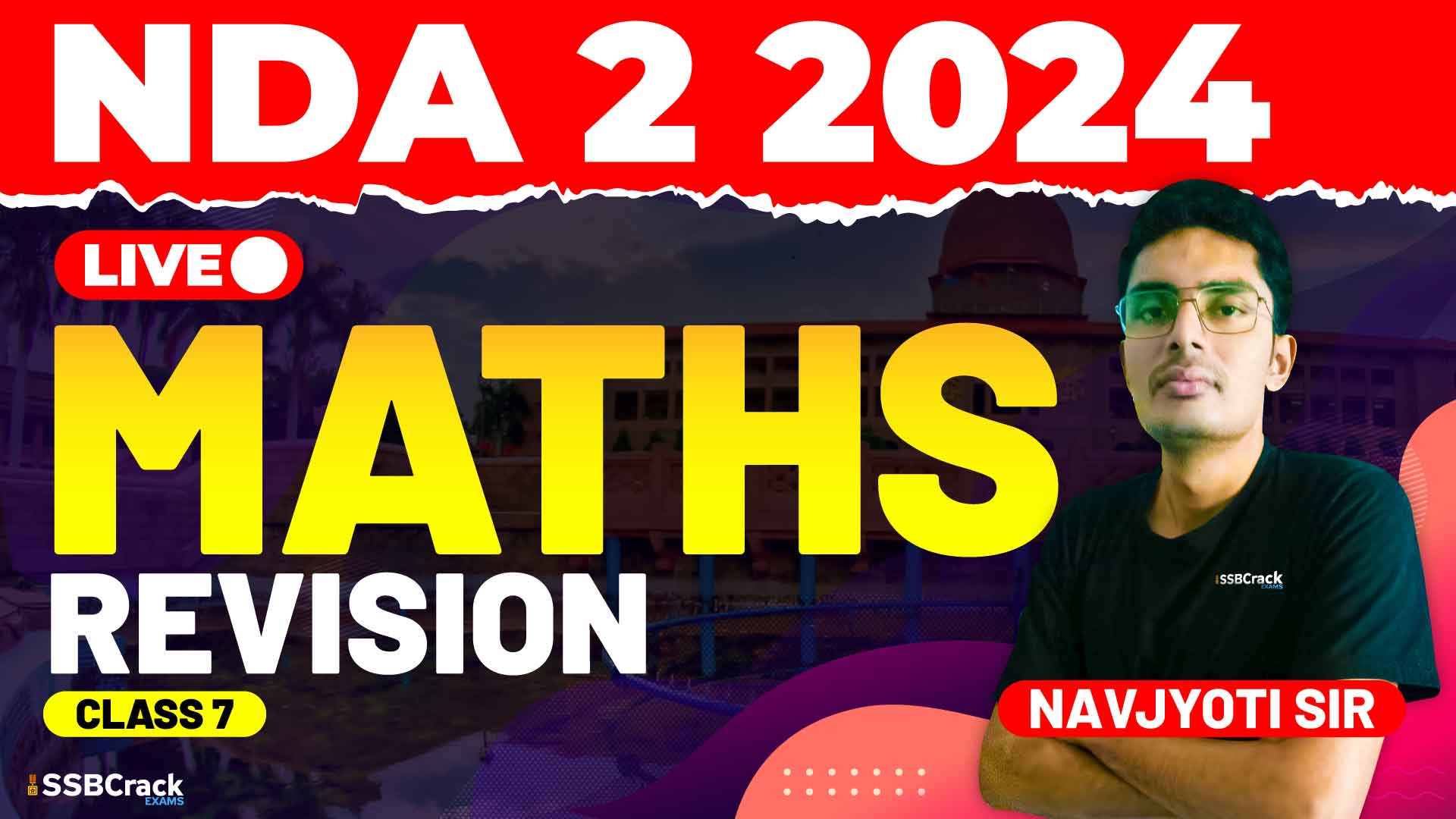Preparing for the NDA-NA Exam, particularly the Mathematics Paper I, requires a strong grasp of a wide array of topics. Among these, the Binomial Theorem and Sequence & Series stand out as fundamental concepts that not only appear directly in the exam but also serve as the foundation for understanding more advanced mathematical topics. The recent class focused on these areas, emphasizing the importance of practicing multiple-choice questions (MCQs) to solidify these concepts. In this article, we’ll delve into the key takeaways from the class and provide strategies for effectively approaching MCQs on these topics in the context of the NDA-NA Exam.
Understanding the Binomial Theorem
The Binomial Theorem is a powerful tool in algebra, providing a method to expand expressions raised to any power. This theorem is particularly useful in solving complex algebraic problems and is frequently tested in the NDA-NA exam.
Key Concepts:
- Expansion: The theorem provides a way to expand binomials of the form ((a + b)n) into a sum involving (n+1) number of terms.
- Binomial Coefficients: Understanding the calculation of binomial coefficients is crucial, as they play a significant role in determining the individual terms in the expansion.
- Application in MCQs: Questions may require you to find specific terms in the expansion, the sum of coefficients, or even the greatest term. Being quick with these calculations can save valuable time during the exam.
Strategy for MCQs:
- Memorize Basic Expansions: Familiarize yourself with common binomial expansions and the first few coefficients. This will help you quickly identify patterns and solutions.
- Focus on Term Identification: Practice problems where you need to find a specific term in the expansion, as this is a common question type.
- Use Approximation Wisely: In some cases, approximation techniques can help you quickly estimate answers, especially for large exponents.
Grasping Sequence & Series
Sequence and Series are foundational topics that appear across various mathematical contexts. In the NDA-NA exam, questions often revolve around arithmetic and geometric sequences, as well as their respective series.
Key Concepts:
- Arithmetic Sequence: A sequence in which the difference between consecutive terms is constant. Understanding how to find the (n)th term and the sum of the first (n) terms is essential.
- Geometric Sequence: A sequence in which each term is obtained by multiplying the previous term by a constant factor. Similar to arithmetic sequences, knowing how to find specific terms and sums is crucial.
- Series: The sum of the terms of a sequence. Being able to distinguish between arithmetic and geometric series and apply the correct formulas is key.
Strategy for MCQs:
- Practice Formula Application: Ensure you are comfortable with the formulas for finding specific terms and sums. Practice applying these formulas in a variety of contexts.
- Recognize Patterns: Many MCQs will test your ability to recognize whether a sequence is arithmetic or geometric. Quick identification allows for faster problem-solving.
- Time Management: Sequence and series questions can sometimes be lengthy. Prioritize practicing these questions to improve your speed and accuracy.
Approaching MCQs in the NDA-NA Exam
When it comes to MCQs, especially in a competitive exam like NDA-NA, precision and speed are your best allies. Here’s how you can optimize your approach:
- Understand the Question: Before jumping to calculations, take a moment to thoroughly understand what the question is asking. Misinterpretation can lead to wasted time and incorrect answers.
- Elimination Technique: If you’re unsure about an answer, use the process of elimination. Narrow down the choices by eliminating incorrect options, increasing your chances of selecting the correct answer.
- Time Management: Allocate your time wisely. If a question seems too complex or time-consuming, move on and return to it later if time permits.
- Practice Under Exam Conditions: Simulate exam conditions by practicing MCQs within a time limit. This will help you get accustomed to the pressure of the actual exam.
Conclusion
The Binomial Theorem and Sequence & Series are integral parts of the NDA-NA Mathematics syllabus. Mastery of these topics, coupled with the strategic practice of MCQs, can significantly boost your performance in the exam. Focus on understanding the core concepts, apply efficient problem-solving strategies, and consistently practice to improve your speed and accuracy. With these tools, you’ll be well-prepared to tackle the NDA-NA Mathematics Paper I challenges.
Remember, success in the NDA-NA Exam is not just about knowing the material; it’s about knowing how to apply that knowledge quickly and accurately under pressure. Good luck with your preparation!







